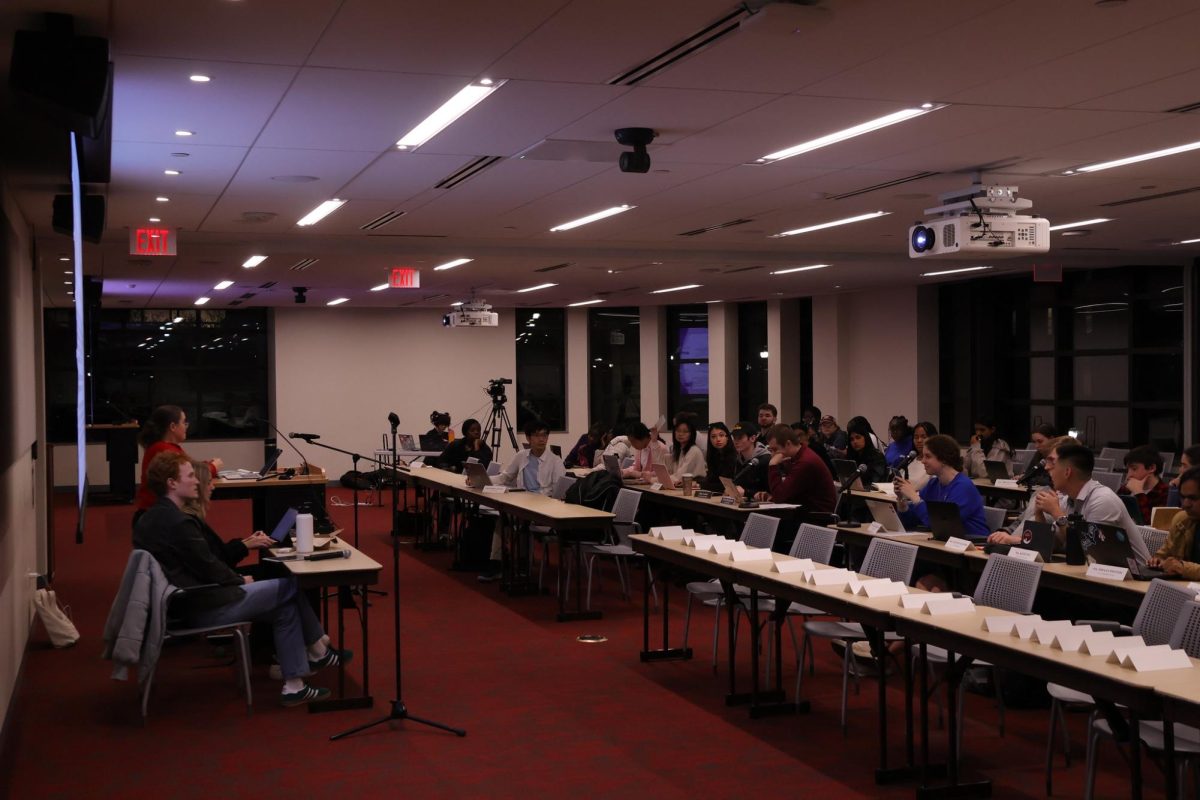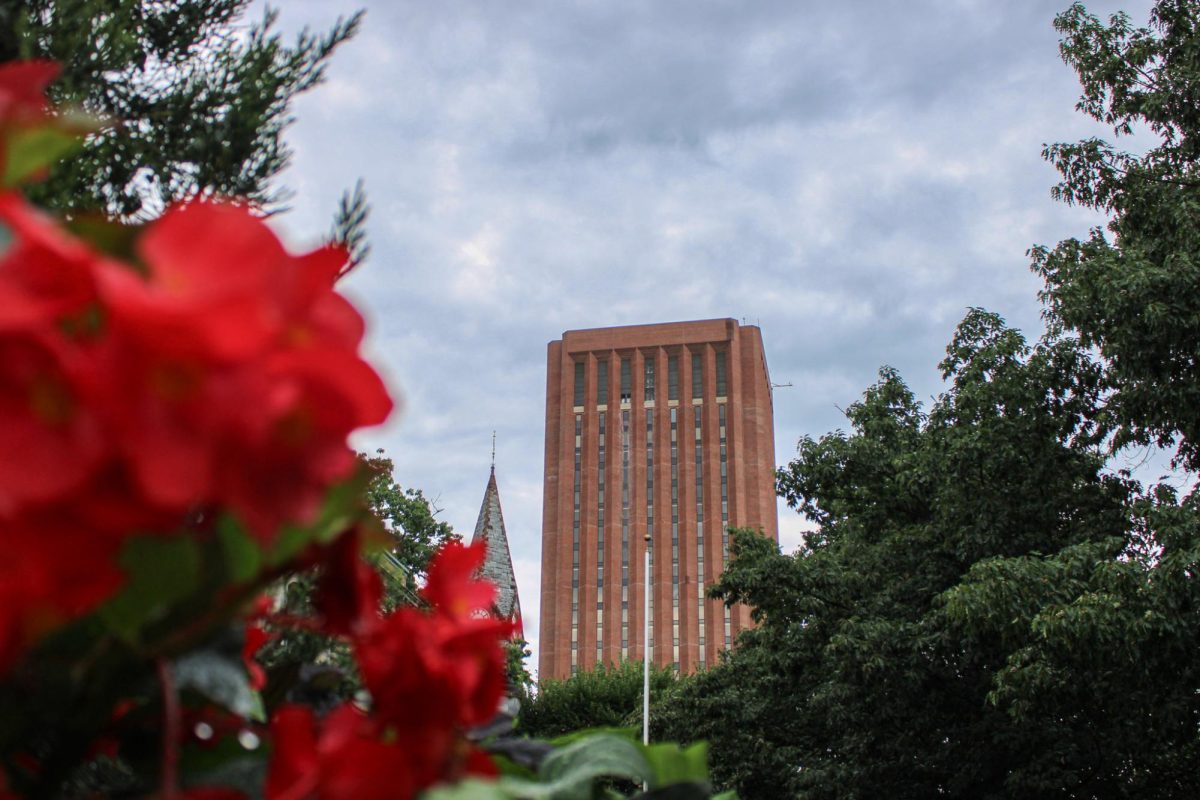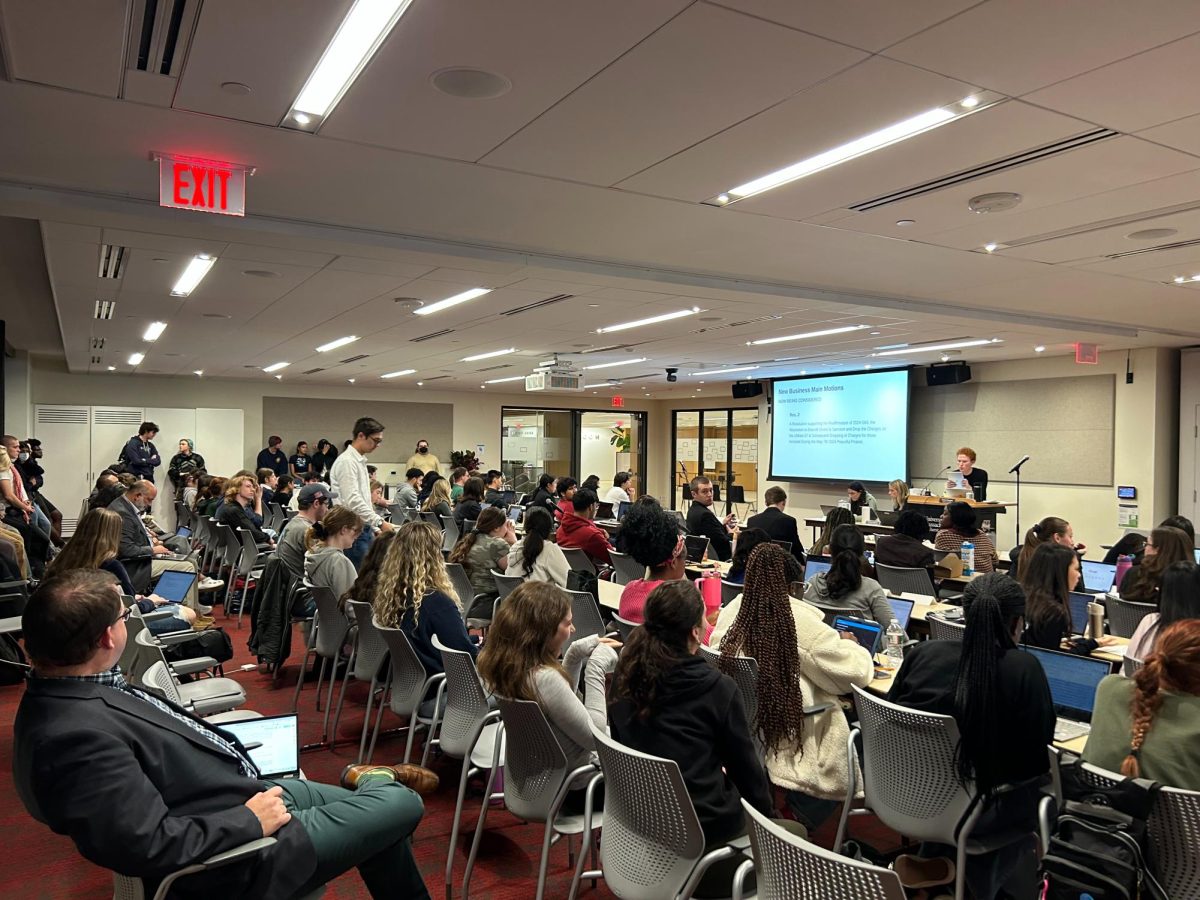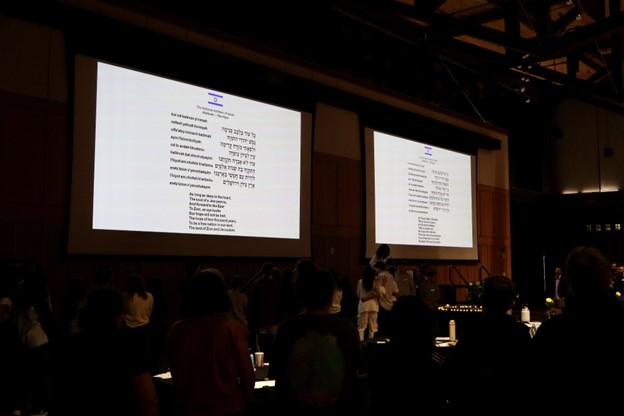
The UMass debate society, The University Union, hosted a debate on whether people have the right to use drugs in the Bowker Auditorium on Wednesday night.
The debate pitted David Murray, former chief scientist and associate deputy director in the federal government’s Office of National Drug Control Policy, against Jeffrey Miron, director of economic studies at the Cato Institute, America’s preeminent libertarian think tank.
“What are rights? Where we find ‘rights’ we find civil and legal responsibility,” said Murray, who now co-directs the Center for Substance Abuse Policy Research at the Hudson Institute, an American conservative think tank.
“America had 52,404 drug induced deaths in 2015. If consumption doesn’t warrant jail, why should those who make it possible for people to consume have to go to jail?” said Murray.
While conceding that it is impossible to say whether drug use is a ‘right’ in the philosophical or linguistic sense, Murray argued that the cost of legalizing drugs outweighs the benefits, and is decidedly against the legalization of drugs, having argued against the legalization of marijuana during his time working for the federal government.
Murray says that while U.S. drug laws have generally become less strict over the last eight years, the number of deaths due to opioid overdose has drastically increased. He explained the U.S. already pays a high cost because of the effects of alcohol consumption, and that legalizing other drugs will only add to that cost.
“There’s study after study that shows that the social cost and public health care cost of alcohol consumption far exceeds, by seven or eight times, the benefits of tax revenue from alcohol sales,” said Murray.
According to Murray, approval or legalization of marijuana has created many negative social consequences, citing an increase of young users of multiple drugs.
“We have the disease model, that drug use is a disease. Well if drug use is a disease do we have the right to get smallpox?” said Murray.
Miron offered an opposing view, vehemently disagreeing that the social and monetary cost of drug use means it should be outlawed. He argued that the prohibition of drugs is only making things worse.
“Whatever you think about drug use, whether you think it’s moral or not, against your religious convictions, healthy or unhealthy — whatever you think of any of those direct effects of using drugs, prohibition of drugs is much worse for almost everyone in society,” said Miron, who is also director of undergraduate studies at Harvard University’s economics department.
“The evidence is that prohibition is extremely ineffective at deterring irresponsible people from using drugs, the type of drug use that will harm people. At the same time, it’s not doing much to discourage activities most of us would like to discourage. Prohibition is creating black markets, crime, corruption, insurrection,” said Miron.
Historically, Miron said, drugs have been prohibited to punish certain ethnic communities seen as threatening, pointing out anti-alcohol legislation aimed at the Irish community and anti-opium legislation aimed at the Chinese community during the 19th century.
In recent times, Miron notes that while drug use statistics show white people use drugs more often than minorities, minorities are more often incarcerated, and that the war on drugs has unfairly targeted African-American and Hispanic communities.
“There are some people who will say that the prisons are full of non-violent people just convicted of drug possession, and that’s a gross overstatement. The number in there for only possession is indeed very small, but there are a lot of people being locked up for selling. There are a lot of people locked up for selling because drugs are illegal, and that’s where the violence and stealing comes from,” said Miron.
While both panelists agreed politicians often falsely characterize the U.S. prison population as “mostly non-violent drug users,” the agreement on the topic ends there. Murray claimed that “it’s difficult to go to prison” and that most of the drug-offending prisoners in America have been in trouble many times.
Miron, however, said parolees sometimes fail a drug test and are subsequently sent back to prison, even though their original crime may have had nothing to do with drugs.
Also, states with a “three strikes rule” that must send someone to prison for three convictions, run the risk of having a comparatively harmless person thrown in jail because of a trivial and victimless drug offenses.
Thus, Miron argued, the amount of people in jail for non-violent drug crimes is smaller than politicians say, but probably a bigger problem than the number Murray, who called the idea of non-violent offenders making up a large portion of the prison population “the incarceration myth,” would give.
David McLellan can be reached at [email protected].



















jerry fischer • Mar 23, 2017 at 9:24 pm
The War On Drugs features armed conflicts – while some argue for herbal remedies to treat human suffering, others seem to take the harsher- or- worse approach.. . In an essay by Albert camus,”Neither Victims Nor Executioners”, Camus wrote “One must understand what fear means: It implies and rejects the same fact : a world where murder is legitimate,and where human life is considered trifling…All I ask is that,in the midst of a murderous world, we agree to reflect on murder and to make a choice. After that, we can distinguish those who accept the consequences of being murderers themselves or accomplices of murderers, and those who refuse to do so with all their force and being. Since this terrible dividing line does actually exist, it will be a gain if it be clearly marked.” SEE ALSO — **”Refuse to be a victim” by Buffy Sainte-Marie –>She attended the University of Massachusetts Amherst, earning degrees in teaching and Oriental philosophy[6] and graduating in the top ten of her class.[7] She went on to earn a Ph.D in Fine Art from the University of Massachusetts.[8] ** in “The Ethnic American Woman:Problems,Protests,lifestyle” Ed. by Edith Blicksilver,Pp.339-40,2nd ed.,Dubuque,IA.,Kendall/Hunt,1978
Anonymous • Mar 23, 2017 at 4:23 pm
Do you have a right to commit suicide?
That’s where you need to start — should the government have the right to lock you up if the think you might harm yourself? It does, and making drugs illegal is only part of that.
And a lot of the “nonviolent” prisoners plead down — agreed to plead guilty to the non=violent offense if the violent offenses were dropped.
jerry fischer • Mar 23, 2017 at 3:12 pm
‘Do You Have The Right To Do Drugs?’ debate held in Bowker Auditorium March 23, 2017
Do WE have the Drugs to do Right? In the audience last evening i invented a drug that discourages its users from using/abusing alcohol,tobacco,& caffeine. Wanted to ask debaters if our presumptive President could be compelled to take the drug – even if a teetotaler – so he could recommend based on personal experience – and dictate ALL CITIZENS consume,whether they choose to or not. JUST THINK of how many businesses would close and how many people would be out-of-work! Then again, the gov’t can re-hire to help drain the swamp….
“Trump’s tall order: Hiring 15,000 ICE and border patrol agents”
READ MORE http://money.cnn.com/2017/03/03/news/economy/hiring-immigration-agents-ice/